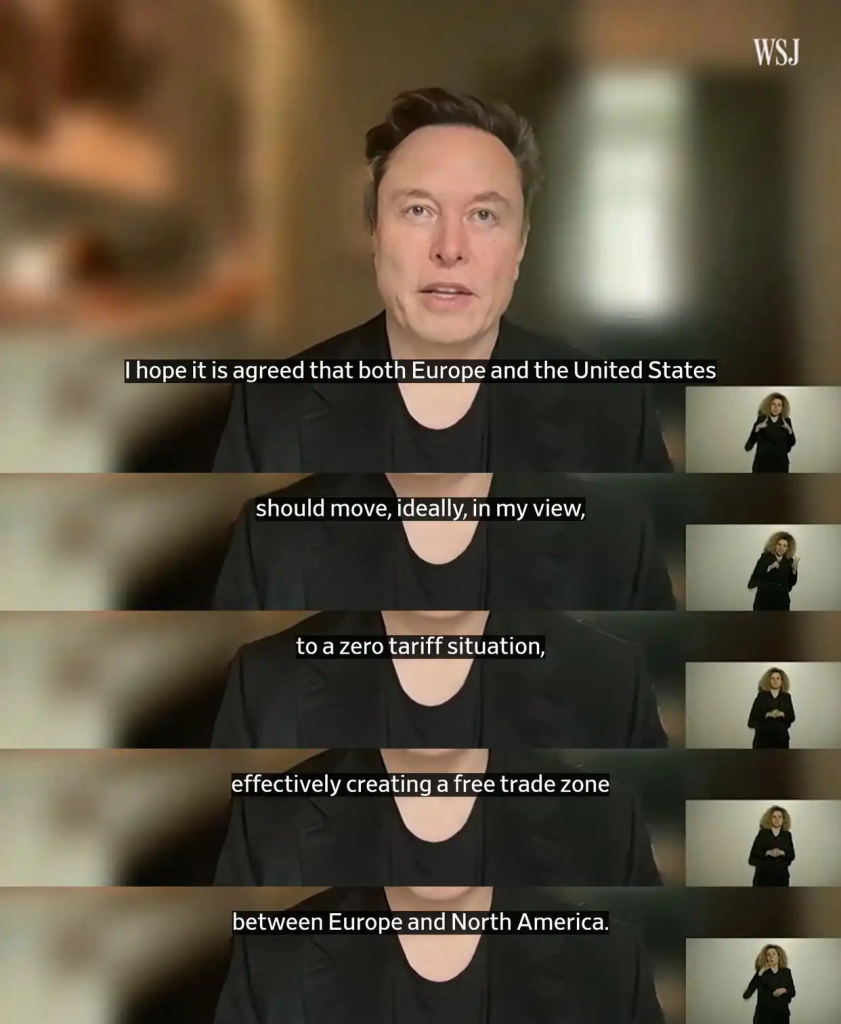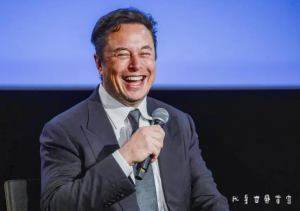According to CNN on April 7th, German Deputy Chancellor and Minister of Economy Robert Habeck believes that Musk’s remarks indicate his weakness and fear. According to Reuters, German Chancellor elect Friedrich Merz urgently called for quick action on the 7th to ensure Germany’s competitiveness in response to the decline in the stock and bond markets.
According to reports, Habeck stated that Musk’s ideas run counter to Trump’s policies. I read Musk’s words and I think this is a sign of weakness, perhaps a sign of fear, because the political actions of both sides are completely different
He said, “If he (Musk) has something to say, he should go to the President (Trump) and say, ‘Before we talk about zero tariffs, let’s stop this nonsense and stop the chaos you created last week.’
Habeck said, “All of this is ridiculous. My only explanation for this is that he now sees that not only his own company, but even the entire country’s economy will collapse because of the chaos they create, so he is very scared
According to reports, Musk put forward the above viewpoint during a video interview with Italian Deputy Prime Minister and League Party leader Salvini at a rally of the far right coalition party in Italy on the 5th. He said, “I hope all parties can reach an agreement – I think so – that Europe and the United States should ideally achieve zero tariffs and establish a free trade zone between Europe and North America
Musk also expressed in the online chat that he hopes the US and Europe can “establish a very close partnership” and have more “free movement” of personnel. If someone wishes to work in Europe or North America, in my opinion, they should be allowed to do so
He added that this was’ certainly my suggestion to President Trump ‘, but he did not elaborate on whether the suggestion was related to tariffs.

On the 2nd of this month, Trump signed an executive order at the White House regarding the so-called “equivalent tariffs”, announcing that the United States would impose a “minimum benchmark tariff” of 10% on global trading partners. For about 60 countries and regions with large trade deficits with the United States or reportedly setting high barriers to imports from the United States, this tax rate will be even higher. As an ally, the EU was not spared, with a final tax rate of 20%.
Reuters reported that due to Trump’s lack of concessions on tariffs and investors betting that the rising risk of economic recession may force the Federal Reserve to cut interest rates as early as May, major global stock indexes collectively plummeted on April 7th.
German Chancellor elect Mertz stated that the volatile situation in the international stock and bond markets is already very severe and may further deteriorate. Germany must urgently restore its international competitiveness as soon as possible, more than ever before.
The leader of the Christian Democratic Union said, “This issue must now become the core topic of the current coalition negotiations.” He once again called on the new government to implement tax reduction policies, simplify administrative processes, and lower energy prices.
Starting from Wednesday, Germany and other EU countries will face a 25% import tariff imposed by the United States on steel, aluminum, and automobiles, as well as a 20% “equivalent” tariff on almost all other goods.
According to reports, these tariff measures will only add insult to injury to Germany’s economy and make it more difficult for the upcoming coalition government to try to pull Europe’s largest economy out of a two-year economic recession.
Faced with the “tariff stick” wielded by the United States, the European Union plans to implement countermeasures on American goods. The European Commission’s Commissioner for Trade and Economic Security, Shevchenko, stated on the 7th that the first part of the EU’s tariffs on the United States are scheduled to begin on April 15th, and the second part of the tariffs are scheduled to begin on May 15th. He stated that EU member states will vote on countermeasures against US steel and aluminum tariffs on April 9th. If the vote is passed, the EU’s two parts of tariffs on the US will be imposed on April 15th and May 15th respectively.
It is reported that the European Commission’s countermeasures plan will be passed as long as it does not face opposition from the 15 member states representing 65% of the EU’s population.
Earlier in the day, European Commission President von der Leyen said that the EU would set up an import monitoring working group and strengthen the single market to deal with US tariffs. Von der Leyen also said that the EU has proposed to the United States to implement zero tariffs on industrial products. In addition, von der Leyen said that the EU was open to tariff negotiations, but was ready to retaliate. She also stated that the EU will focus like a laser beam on 83% of global trade outside of the United States.




